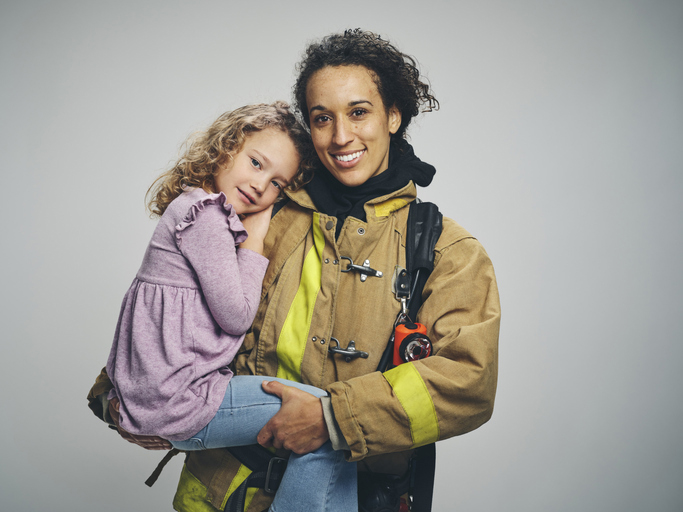Behind every first responder is a family standing tall to support them. Though first responder families are often overshadowed by the flashing lights and sirens, they live lives of quiet bravery and resilience. From coping with constant worry over their loved one’s safety to managing the unpredictable nature of emergency work and its impact on the home, these families face their own set of challenges.
Today, we’d like to shine a spotlight on the experiences of first-responder families and share a few resources that can offer some much-needed support.
The Challenges of Being a First Responder Family
First, it’s important to understand the unique difficulties many family members face, including:
- Emotional Stress and Anxiety: Families of first responders often must grapple with ongoing worry and anxiety over their loved ones due to their occupational exposure to danger. Much like first responders have to deal with the unpredictability of emergency work, their family members are also unsure of what each day may bring.
- Long, Irregular Work Hours: The atypical and often extended working hours of first responders can also put a strain on first responders and their families. Long shifts that stretch into the nights can hinder family bonding time and disrupt routines and schedules. This often puts more responsibilities on spouses to manage the household alone.
- Limited Availability for Family: In addition to irregular and long working hours, the demanding nature of a first responder’s job means they often have to miss significant family events, such as birthdays, school functions, anniversaries and holidays. Their absence during these moments can lead to feelings of disappointment or even abandonment, especially for children.
- Physical Risk and Health Concerns: The inherent danger of being a first responder can bring constant worry about physical harm. Families often live with the fear of potential injury or worse, impacting their mental well-being, and exposure to hazardous and traumatic conditions can have long-term impacts on their loved ones.
- Financial Strain: Despite the essential nature of their work, many first responders and their families face financial stress, whether it’s from the rising cost of living or health care expenses in the case of injury or trauma. In the tragic event that a first responder passes in the line of duty, their family could be facing even greater financial distress on top of dealing with the grief. Fortunately, a wide array of support resources are available to first-responder families.
Helpful Resources for Supporting First Responders and Their Families
Here are a few resources to help first responders and their family members:
- First Responders Support Network offers specialized retreats and mental health support for first responders and their families, focusing on recovery from traumatic stress and promoting well-being through peer support and education.
- Hope for Emergency Responders Organization (HERO) is dedicated to providing support and resources and fostering a community of care and recognition for the mental and physical health of first responders and their families.
- First Responders Children’s Foundation provides financial assistance and educational resources to children who have lost a parent in the line of duty and families facing hardship due to a first responder’s work-related trauma.
- Family Survivor College Scholarship was established by AFBA to support the educational aspirations of the children of fallen first responders.
- Financial and Legal Assistance offered by AFBA through various programs and organizations provides financial guidance and legal support to first-responder families, helping them navigate the complexities of financial planning, insurance and more.
At AFBA, we recognize the strength and courage of first responder families, and we’re here to help. Find out more about the support and resources available to our members.

